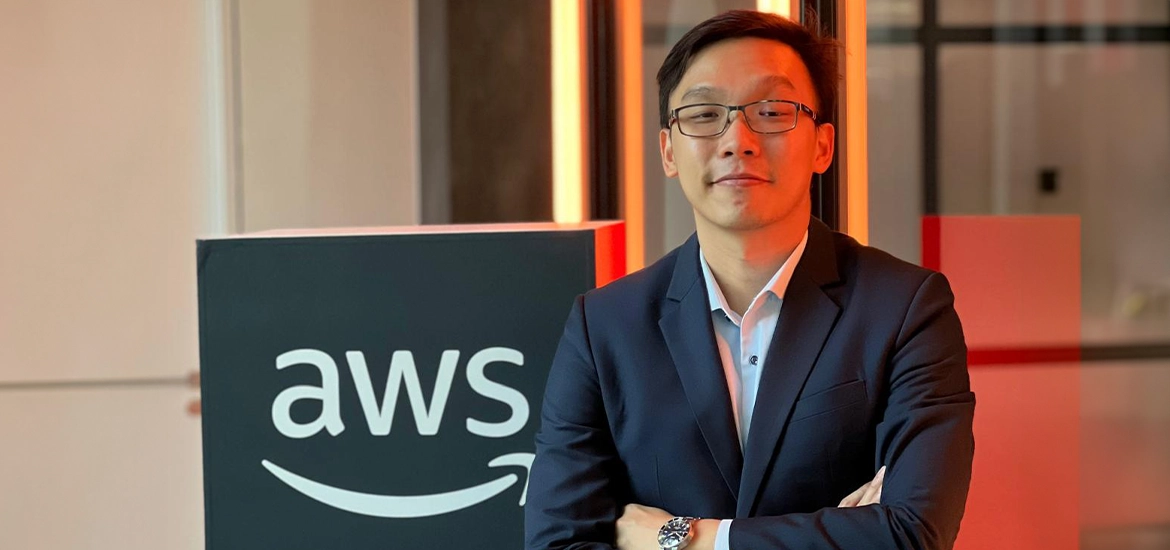Tay Zong Huai is the APJ Innovation Hub Lead at Amazon Web Services (AWS). The company recently opened its multi-million-dollar Innovation Hub in Singapore and has plans to invest an additional US$9b into cloud infrastructure in Singapore by 2028. At the Innovation Hub, AWS aims to fast-track digital and AI transformation and innovation through engagements with over 1,000 C-suite executives and 200 local tertiary students annually. The tech giant is also supporting Singapore-based companies in their AI transformation journey through the AI Springboard programme under the Enterprise Compute Initiative.
1. Tell us about what you do at AWS.
As the APJ Innovation Hub Lead, I oversaw the development and build of AWS’s Singapore-based innovation hub, which is the first global customer experience centre of its kind. It’s a facility where our customers can shape their digital transformation journeys with AWS’s cloud capabilities through immersive tech demonstrations, interactive workshops, and collaborative ideation sessions. My team and I are constantly developing new use cases and solutions that demonstrate how cloud technology can help manufacturing and industrial organisations modernise their operations while meeting sustainability goals.
Of course, building the Innovation Hub wasn't easy as the project's scope was extensive, from physical construction and technology integration to designing a compelling customer experience flow. A project of this scale typically requires a two-year timeline to complete. However, we were able to accelerate this and get the Innovation Hub up and running in just eight months — thanks to the collaboration among the AWS team and our extensive network of partners.
Since the Innovation Hub's opening, I’ve focused on demonstrating its value to customers. I do so by hosting C-suite executives, showing them what is achievable with AWS solutions, and working closely with experts to ensure our Innovation Hub remains sustainable and technologically up-to-date.







